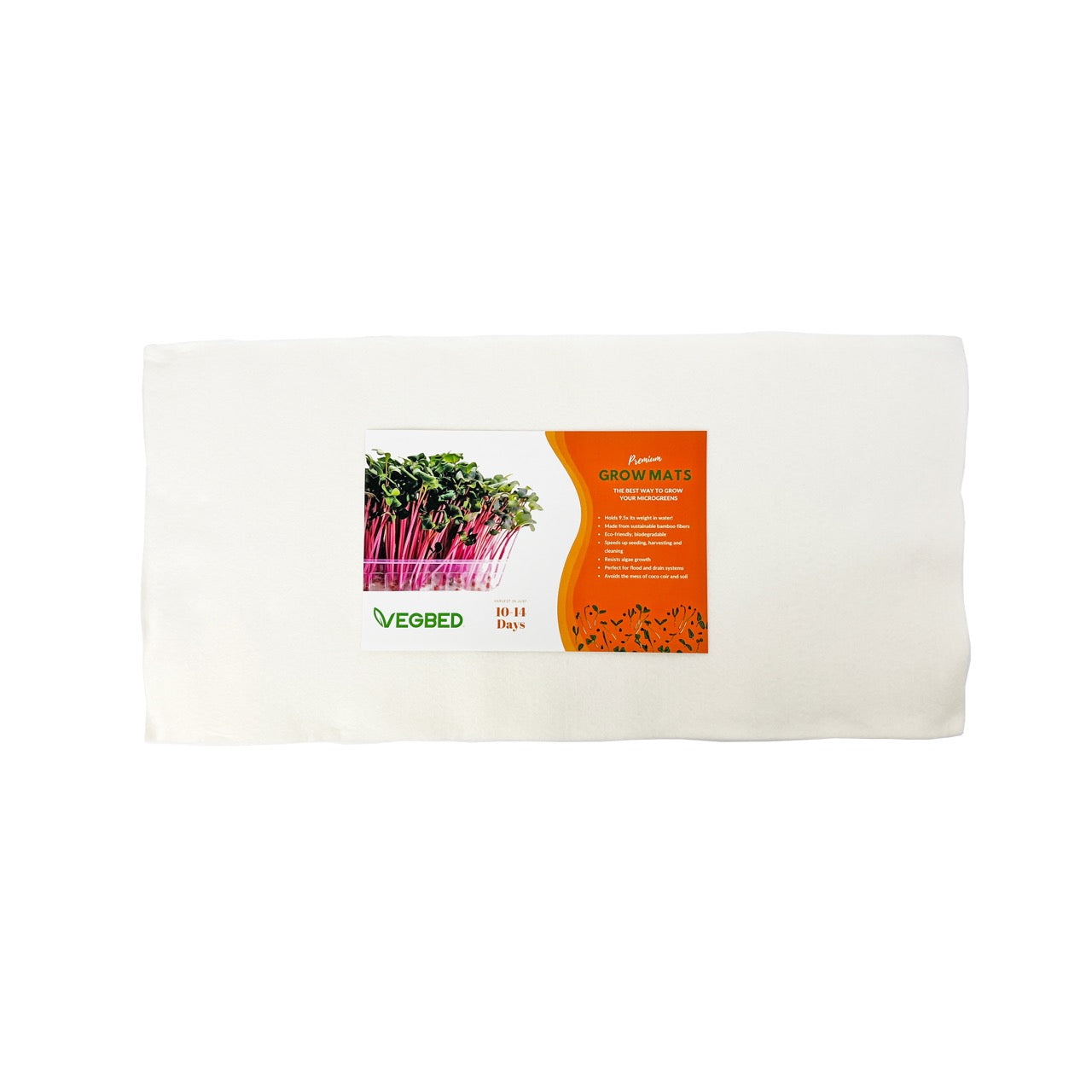As the global population continues to rise, feeding billions of people becomes an increasingly complex challenge. Traditional farming methods, while rich in history and cultural significance, often struggle to meet the demands of modern society. However, modern agriculture offers innovative solutions to ensure food security, sustainability, and resilience in the face of growing pressures.
In this blog post, we’ll explore why embracing agricultural innovation is essential for global food security, how these advancements impact various aspects of farming, and how Vegbed plays a unique role in this transformative movement.
Meeting the Growing Demand for Food
The Challenge
By 2050, the global population is projected to surpass 10 billion, intensifying the demand for food. However, arable land is finite, and urbanization reduces available space for traditional farming. This raises critical questions: How can we produce enough food without depleting natural resources?
Modern Agriculture Solutions
- Precision Farming: Leveraging technologies like GPS, sensors, and data analytics, precision farming helps optimize crop yields by using resources such as water and fertilizers more efficiently.
- Vertical Farming: By growing crops in stacked layers, vertical farming maximizes productivity in urban areas, significantly reducing land use.
- Hydroponics and Aeroponics: These soil-free farming methods use nutrient-rich water or mist, offering faster growth cycles and reduced water usage compared to traditional farming.
Through these methods, modern agriculture is bridging the gap between growing demand and limited resources.
Enhancing Sustainability and Reducing Environmental Impact
The Challenge
Agriculture is one of the largest contributors to deforestation, soil degradation, and water pollution. As climate concerns grow, sustainable practices become essential to minimize harm to the environment.
Modern Agriculture Solutions
- Regenerative Agriculture: Techniques like crop rotation, cover cropping, and reduced tillage restore soil health, sequester carbon, and enhance biodiversity.
- Integrated Pest Management (IPM): A combination of biological and cultural strategies minimizes the use of chemical pesticides, reducing environmental damage.
- Renewable Energy: Solar, wind, and bioenergy are increasingly used to power farming operations, reducing reliance on fossil fuels.
By integrating these practices, the agricultural sector is making strides toward sustainability.
Improving Food Quality and Safety
The Challenge
Consumers demand food that is safe, nutritious, and environmentally friendly. However, traditional methods often struggle with issues like pesticide residues, foodborne illnesses, and inconsistent quality.
Modern Agriculture Solutions
- Biotechnology: Innovations in genetic engineering are creating crops with enhanced nutritional profiles and greater pest resistance.
- Blockchain Technology: Used for transparency, blockchain ensures traceability across the food supply chain, reducing risks of contamination.
- Smart Packaging: Sensors integrated into packaging can monitor freshness and alert consumers to potential spoilage.
These advancements help ensure that food quality meets the expectations of a health-conscious and eco-aware society.
Supporting Farmers and Rural Communities
The Challenge
Farmers face financial instability, limited access to markets, and a lack of modern tools. These challenges threaten livelihoods and the sustainability of rural communities.
Modern Agriculture Solutions
- Digital Agriculture: Mobile apps provide real-time weather updates, crop management tips, and market insights, empowering farmers with actionable data.
- Microfinancing: Small loans enable farmers to invest in modern equipment and sustainable practices.
- Education and Training: Programs focused on teaching modern farming techniques help farmers increase productivity and reduce environmental impact.
Empowering farmers with resources and knowledge strengthens rural economies and ensures a stable food supply.
Adapting to Climate Change
The Challenge
Climate change poses one of the greatest threats to agriculture. Unpredictable weather patterns, extreme heat, droughts, and floods disrupt farming systems, threatening global food security.
Modern Agriculture Solutions
- Climate-Resilient Crops: Breeding crops to withstand drought, heat, and flooding ensures that agricultural output remains steady in a changing climate.
- Agroforestry: Incorporating trees into farmland reduces soil erosion, enhances biodiversity, and improves water retention.
- Water-Saving Technologies: Advanced irrigation systems like drip irrigation and moisture sensors reduce water wastage while maintaining crop health.
Adaptation through innovation is critical to ensuring that agriculture can thrive in the face of climate uncertainties.
Vegbed: Innovating for a Sustainable Future
As a company committed to sustainability and innovation, Vegbed plays a crucial role in modern agriculture. Our bamboo grow mats are specifically designed for soilless farming methods, such as hydroponics and vertical farming. These mats are made from renewable bamboo fiber, offering several key advantages:
- Eco-Friendly: Fully biodegradable, Vegbed mats reduce waste compared to traditional plastic or synthetic growing mediums.
- Water Efficient: The mats retain moisture exceptionally well, reducing water usage—a critical factor in regions facing water scarcity.
- Mold Resistant: Mold is a common issue for microgreen growers, but Vegbed mats provide a stable, inert environment that minimizes this risk.
Vegbed empowers both small-scale growers and commercial operations to adopt sustainable practices while maintaining high productivity. By bridging the gap between tradition and innovation, Vegbed is helping to feed the future responsibly.
The Role of Policy and Education
For modern agriculture to succeed on a global scale, supportive policies and education are essential. Governments must invest in agricultural research, provide subsidies for sustainable practices, and develop frameworks to encourage innovation.
Educational initiatives are equally important. Farmers need access to training programs that teach them how to implement new technologies effectively. Collaborative efforts between governments, private sectors, and educational institutions can drive the widespread adoption of modern agriculture.
Conclusion
Embracing modern agriculture is about more than just technology; it’s about rethinking how we grow, distribute, and consume food. By integrating innovative solutions, we can create a sustainable, efficient, and resilient food system capable of feeding future generations.
Vegbed is proud to be part of this movement. Our products not only support sustainable practices but also empower growers to overcome challenges like limited resources and climate change. Together, we can build a future where everyone has access to safe, nutritious, and plentiful food.
The journey toward global food security starts today—with innovation, collaboration, and a commitment to sustainability.



